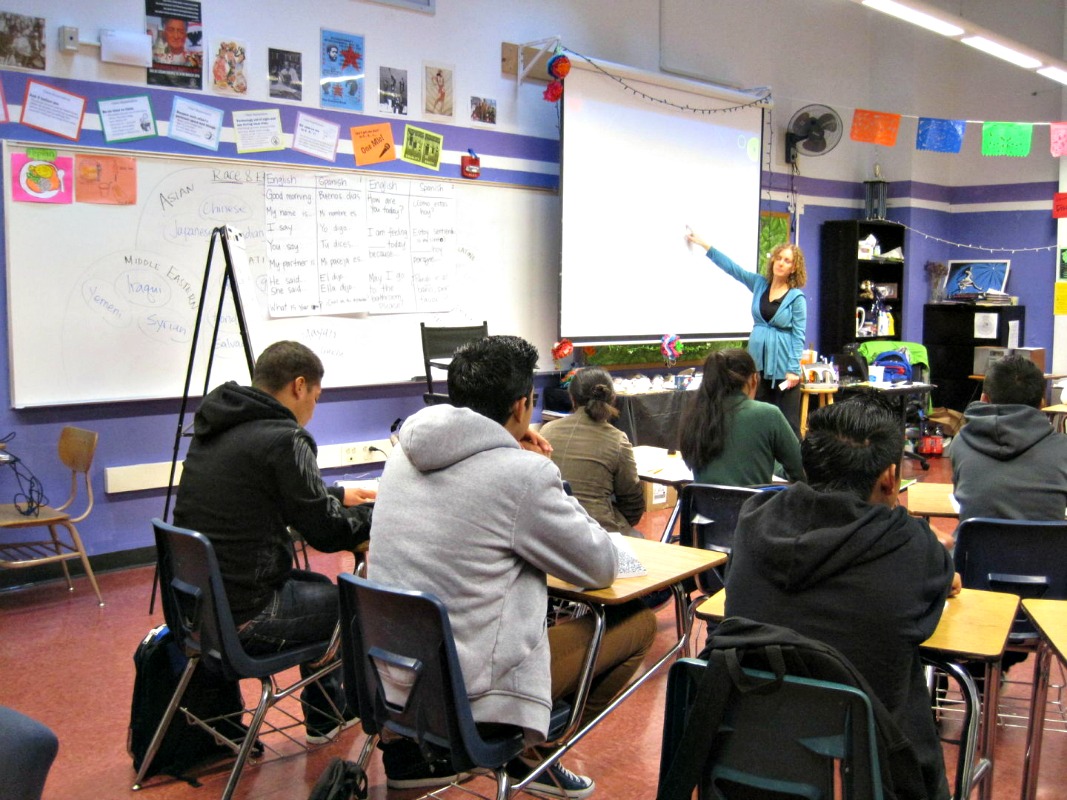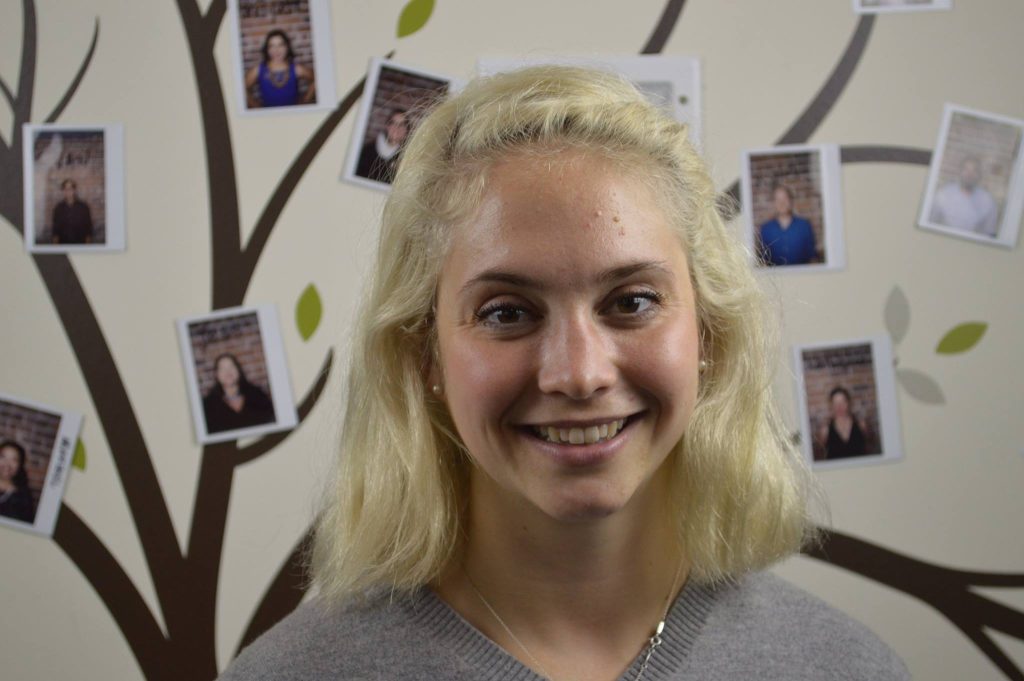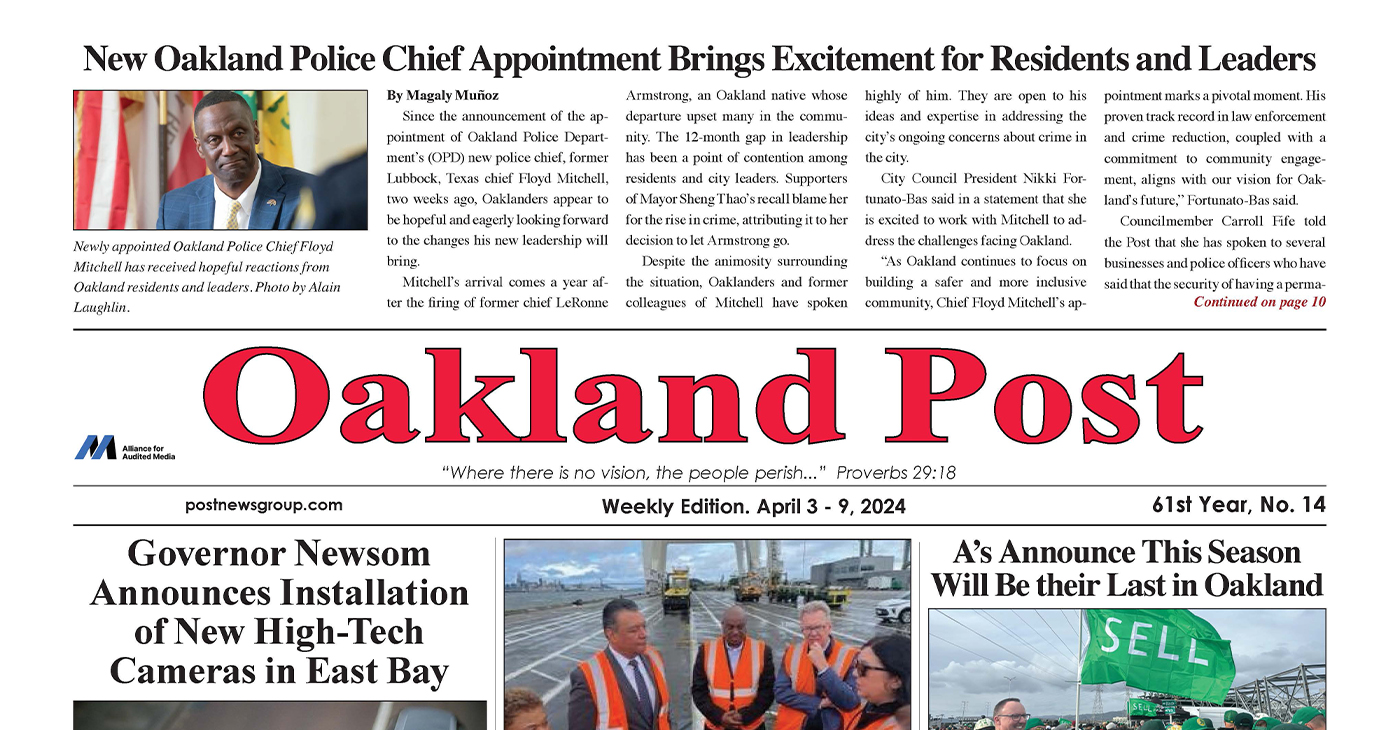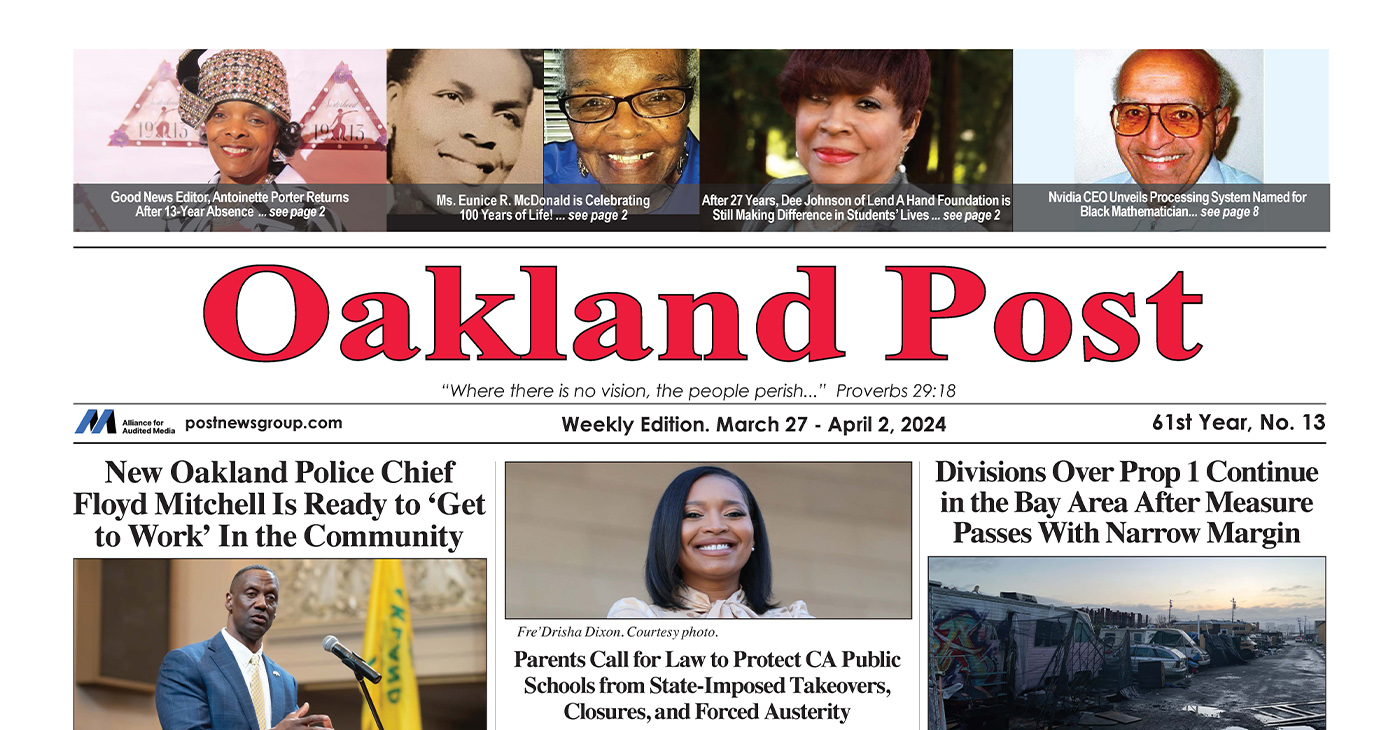Opinion
OP-ED: Oakland’s New Teachers Need Your Support

By Hannah Lukanuski
My first day of teaching fourth grade was two years ago and it was a whirlwind of energetic joy and panicked mistakes.
Luckily, I was at a school that anticipated and addressed the challenges I faced as a new teacher. I received almost daily observation and feedback from my principal, was coached on classroom management, and had time during the week to collaboratively plan lessons with my grade level team.
These resources both alleviated my first-year teaching anxiety and improved my classroom practices quickly.
Allocating resources towards supporting new teachers demonstrated our school’s commitment to equitable student experiences and outcomes.
Since Oakland shares that commitment, it should ensure that all first year teachers have that same degree of support. Right now, new teacher experiences differ greatly across the district; many new teachers have no access to coaches and infrequent opportunities for feedback from instructional leaders.
This is especially unfair to the new teachers who are overwhelmingly concentrated at schools in the highest needs areas of Oakland, where students need teachers who are supported and developed from day one.
One out of five Oakland teachers are in their first or second years of teaching. It is therefore imperative that Oakland Unified School District prioritize our needs.
Better and more consistent support for new teachers would improve instruction in a significant portion of Oakland classrooms, improving the academic outcomes of students in those spaces.
It would also reduce teacher turnover, which burdens students, staff, and school administrations.
As the teacher contract negotiations between the Oakland Education Association and the district begin, we must continue to push for new teacher support to be included in the renegotiated contract.
As a Teacher Policy Fellow at GO Public Schools Oakland, I worked with a group of Oakland teachers to research and recommend policies to improve new teacher support and teacher leadership opportunities in Oakland.
We recommend that new teachers are provided with meaningful and effective mentorship, that the district and schools align their expectations and support mechanisms for new teachers, and that the district invest in schools with high percentages of new teachers on staff.
I am excited to see our recommendations reflected in the Oakland Education Association’s initial proposals for the new contract.
The union has proposed adding a baseline of support for new teachers, and for the first time, included guidelines to ensure teacher leadership positions are clearly defined, accessible to all teachers, and properly compensated.
These items are key to ensuring equitable supports for new teachers around the city and improving student achievement.
Prioritizing meaningful mentorship, aligned supports, and equitably allocated resources would make a difference not only for new teachers, but more importantly for Oakland students.
As negotiations for the new teacher contract move forward, please support new teachers and equity in Oakland classrooms by contacting your school board representative at boe@ousd.org
 Hannah Lukanuski is a teacher at Garfield Elementary School and Teacher Policy Fellow at GO Public Schools Oakland. For information go to www.gopublicschoolsoakland.org
Hannah Lukanuski is a teacher at Garfield Elementary School and Teacher Policy Fellow at GO Public Schools Oakland. For information go to www.gopublicschoolsoakland.org
Activism
Oakland Post: Week of April 10 – 16, 2024
The printed Weekly Edition of the Oakland Post: Week of April 10 – 16, 2024

To enlarge your view of this issue, use the slider, magnifying glass icon or full page icon in the lower right corner of the browser window. ![]()
Activism
Oakland Post: Week of April 3 – 6, 2024
The printed Weekly Edition of the Oakland Post: Week of April 3 – 6, 2024

To enlarge your view of this issue, use the slider, magnifying glass icon or full page icon in the lower right corner of the browser window. ![]()
Activism
Oakland Post: Week of March 27 – April 2, 2024
The printed Weekly Edition of the Oakland Post: Week of March 27 – April 2, 2024

To enlarge your view of this issue, use the slider, magnifying glass icon or full page icon in the lower right corner of the browser window. ![]()
-

 Activism4 weeks ago
Activism4 weeks agoOakland Post: Week of March 20 – 26, 2024
-

 #NNPA BlackPress3 weeks ago
#NNPA BlackPress3 weeks agoCOMMENTARY: D.C. Crime Bill Fails to Address Root Causes of Violence and Incarceration
-

 #NNPA BlackPress3 weeks ago
#NNPA BlackPress3 weeks agoMayor, City Council President React to May 31 Closing of Birmingham-Southern College
-

 #NNPA BlackPress3 weeks ago
#NNPA BlackPress3 weeks agoFrom Raids to Revelations: The Dark Turn in Sean ‘Diddy’ Combs’ Saga
-

 #NNPA BlackPress3 weeks ago
#NNPA BlackPress3 weeks agoCOMMENTARY: Lady Day and The Lights!
-

 #NNPA BlackPress3 weeks ago
#NNPA BlackPress3 weeks agoBaltimore Key Bridge Catastrophe: A City’s Heartbreak and a Nation’s Alarm
-

 #NNPA BlackPress3 weeks ago
#NNPA BlackPress3 weeks agoBaltimore’s Key Bridge Struck by Ship, Collapses into Water
-

 Activism3 weeks ago
Activism3 weeks agoOakland Post: Week of March 27 – April 2, 2024















































